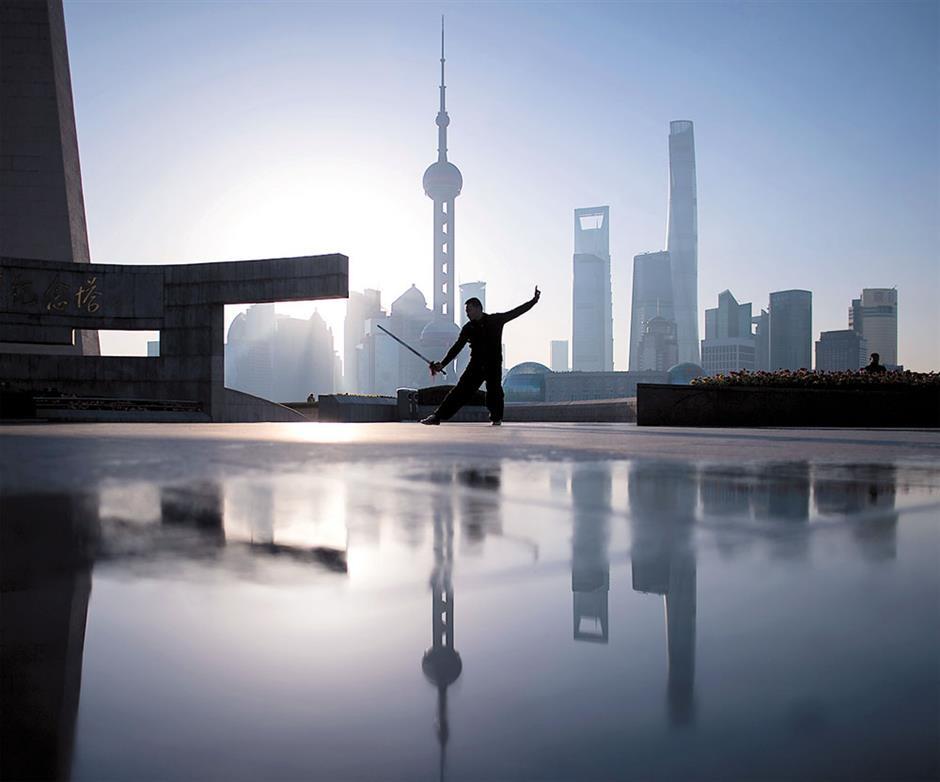Fair play for rising sports industry

Determined that the people are both healthier and better entertained, the city released a sports development plan yesterday.
Suggestions in the plan include support for winter and water sports, more local competitions, increasing the number of sports facilities and improving their management.
“The plan is intended to guide sports policy-making and create a better environment for the industry. Sport is a comparatively new growth point of the national economy and showcases a city’s competitiveness,” said Vice Mayor Chen Qun.
Apart from hosting world-class international events like F1 and the Rolex Shanghai Masters tennis, the city plans to grow its own competition brands and introduce new ways of organizing events.
“The Nacra 17 Shanghai Cup was a good example,” said Zhang Xiong, deputy director of Shanghai Development and Reform Commission.
“It was organized by a local sailing club rather than the government and involved sailors from 10 countries. The event attracted over 10,000 spectators along the Huangpu River. Next month, the world’s 30 top-ranked sailors will compete here again,” said Zhang.
The plan also emphasizes better management of sports venues and facilities.
“Ownership and operation of venues will be separated,” said Zhang.
“Pudong’s Oriental Sports Center, for example, is owned by the city, but managed by an independent company. Xujiahui Park and Pudong Football Stadium will have similar regimes.”
“Third-party management could be better for us,” keen sportsman Xu Jun told Shanghai Daily. “I live near Hongkou Football Stadium and the management of the facilities there, including squash courts, does not make anything easy.
“You can’t call up to make a booking but have to go to there in person. The basketball courts are often used for parking, which is just a waste of resources.”
According to the plan, support will be given to minority sports including extreme sports, fencing, equestrianism and darts.
Activities suitable for the elderly and children will also be encouraged.
Shanghai’s sports industry was worth 127 billion yuan (US$19 billion) last year, generating 47 billion yuan in value added and accounting for 1.6 percent of GDP. The city plans to raise the value of the industry to 200 billion yuan by 2020 and 400 billion yuan by 2025.
The number of sports enterprises in the city reached 11,500 last year, including camping sites, cycling service stations and yacht docks, compared to 8,000 in 2015. Each citizen spent an average of 2,460 yuan on sports last year, 6.2 percent of their total expenditure.
Shanghai has only 1.8 square meters of sporting venue per capita, an amount far less than Beijing (2.25) and provinces like Jiangsu and Guangdong.
“We will make use of disused warehouses, rooftops and riverside space to create more venues. In the future, all citizens should be able to reach a sports facility within 15 minutes,” said Chen Qun.
“The plan requires the joint efforts of various departments,” said Xu Bin, director of the Shanghai Sports Bureau.
“Sports authorities are responsible for setting up associations, regulations and competitions. The cultivation of talent and athletes requires support from human resources and education departments. Athletes also need help from the foreign affairs bureau in applying for visas to compete overseas.”
The city plans to become the national eSports center. These are “sports” played via computer.
According to Xu, about 80 percent of the country’s eSports companies, clubs, teams and broadcasting platforms are based in the city, the first with an eSports association.















